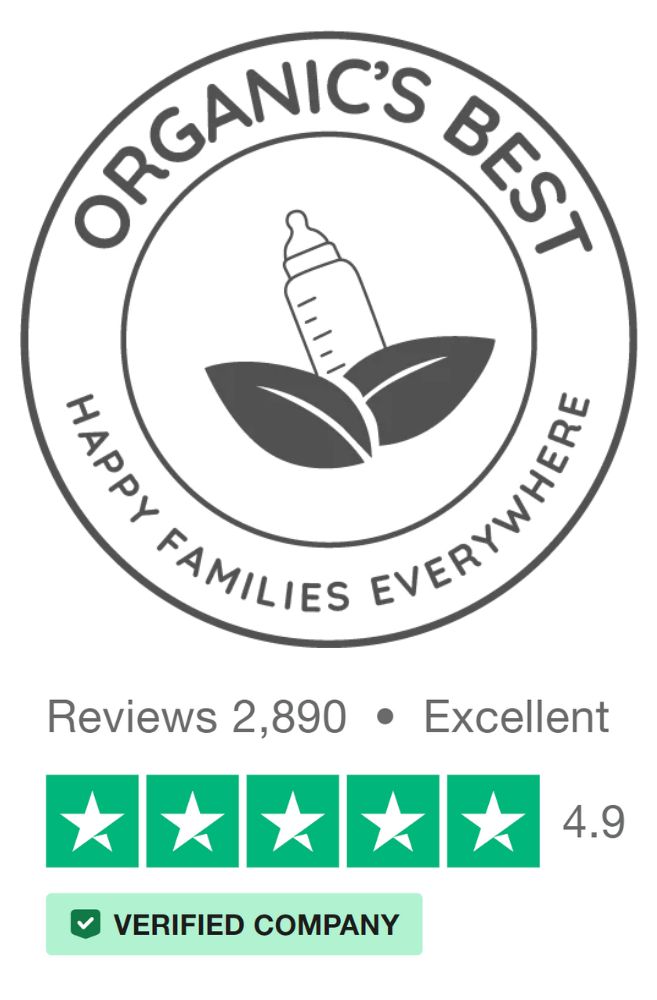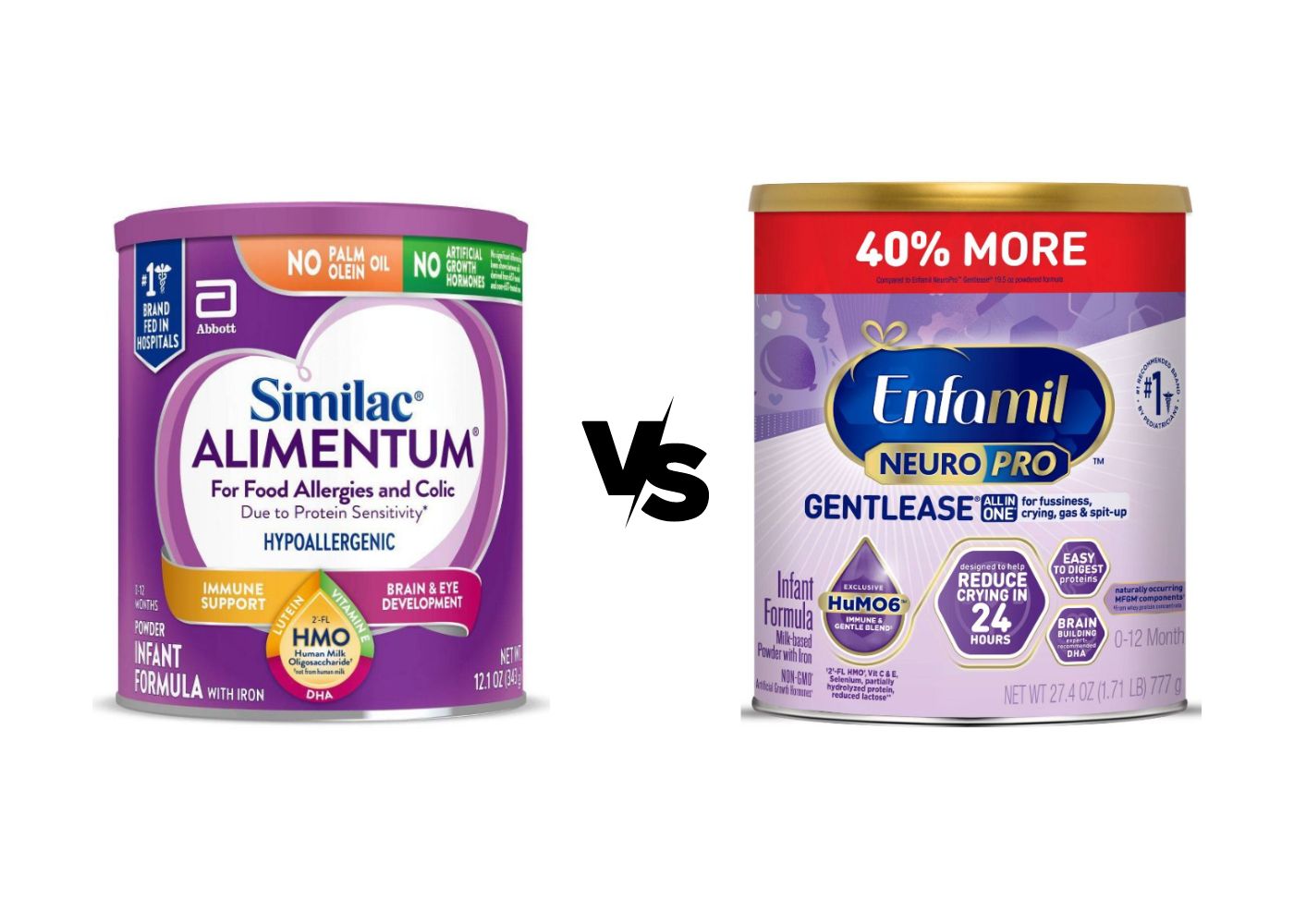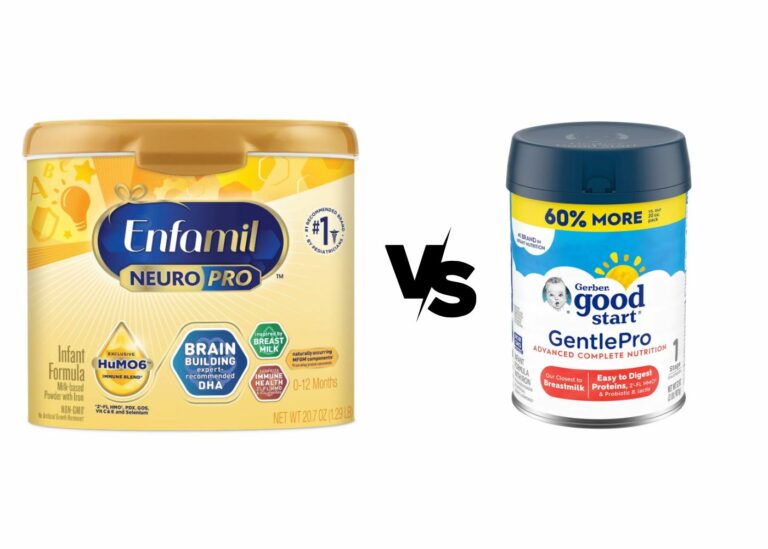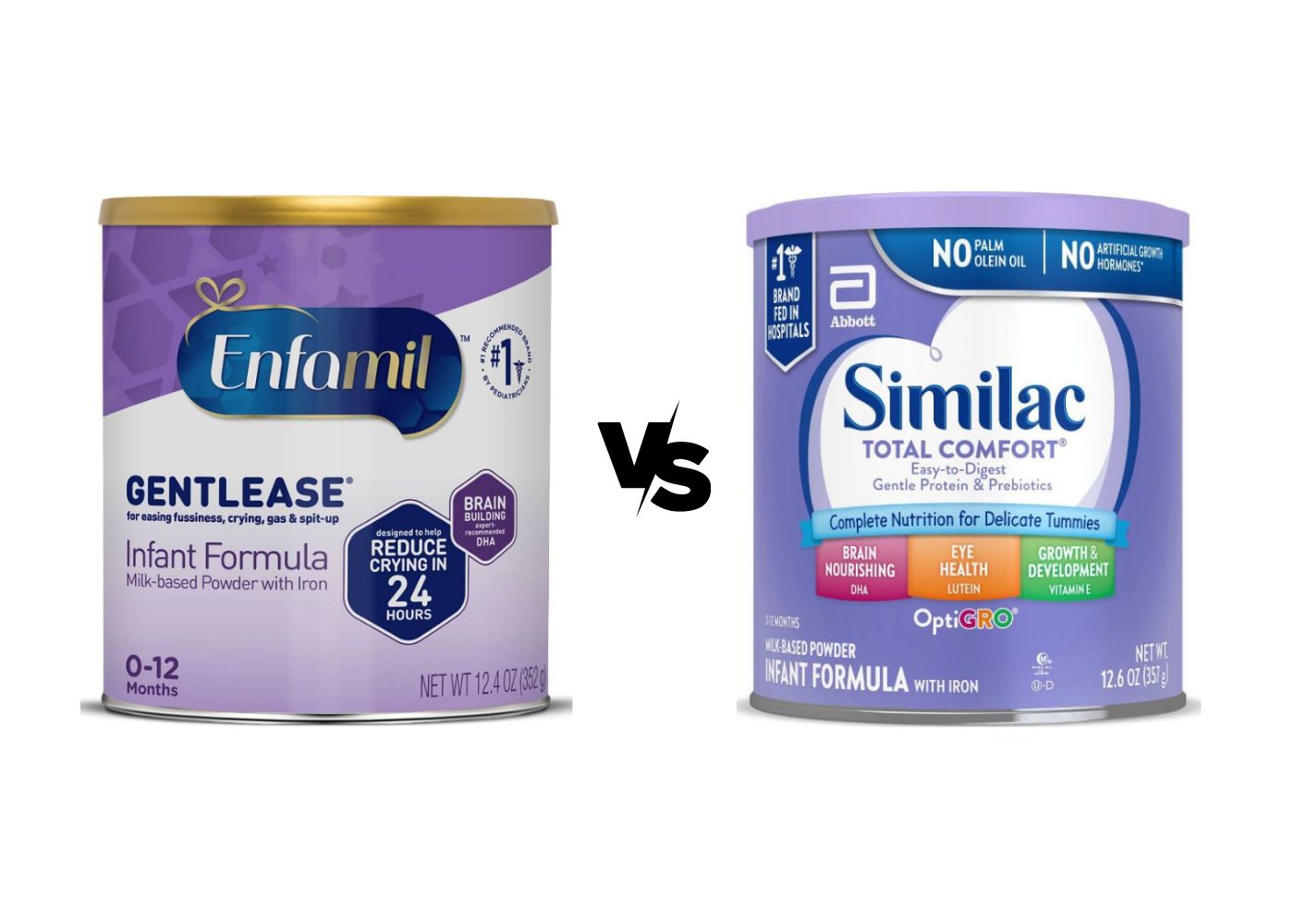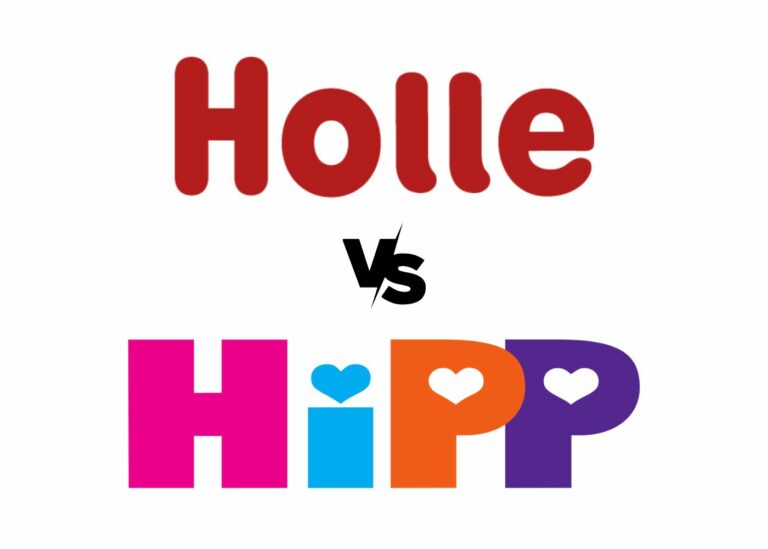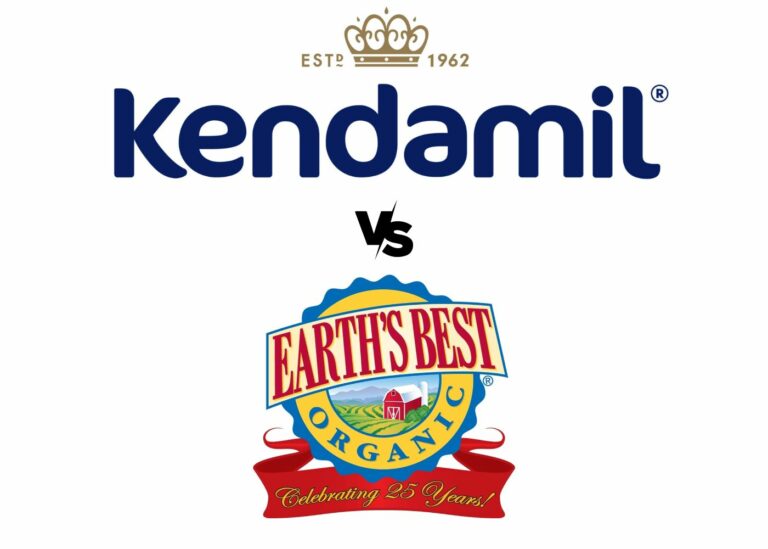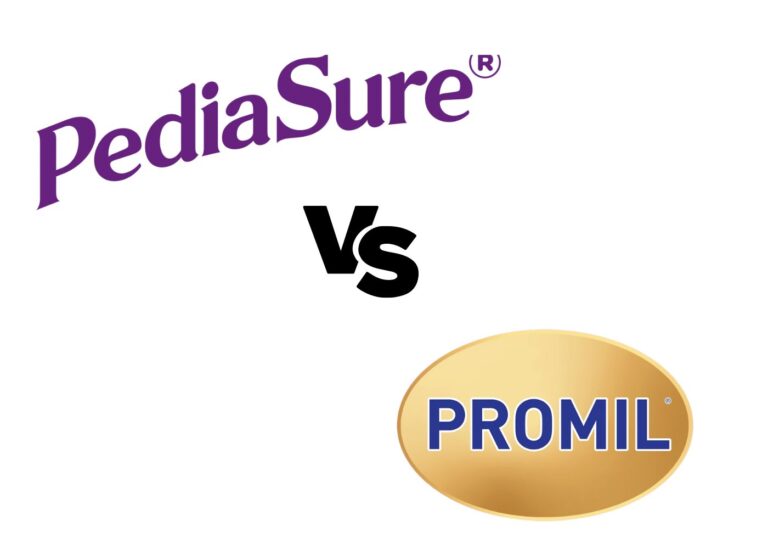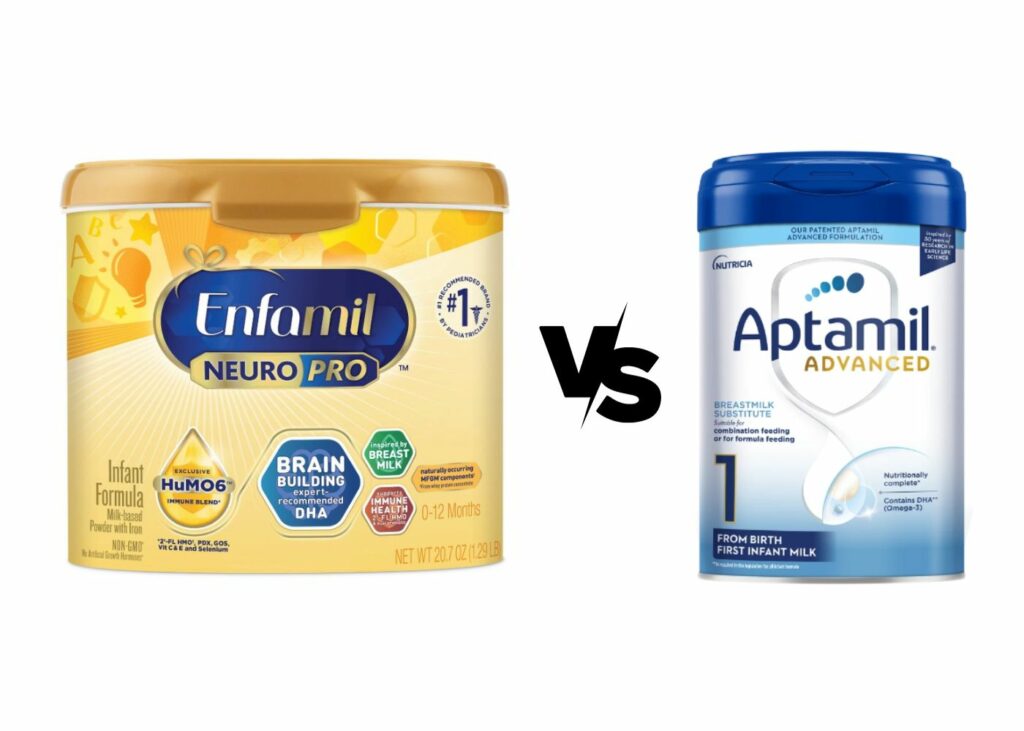
Key Differences Table Between Enfamil Neuropro and Aptamil Advanced
| Aspect | Enfamil Neuropro | Aptamil Advanced |
|---|---|---|
| Brand Recognition | – Trusted and pediatrician-recommended brand | – Well-respected brand known for mimicking breast milk nutrients |
| Core Ingredients | – Omega-3 DHA and MFGM for cognitive and immune support | – GOS for gut health, 2′-FL for brain and immune support, and DHA for brain development |
| Protein Content (per 5 fl oz serving) | – 2.1g (from nonfat milk and whey protein concentrate) | – Approx. 1.95g (from skimmed milk and whey concentrate) |
| Carbohydrate Content (per 5 fl oz serving) | – 11.3g (from nonfat milk and lactose) | – Approx. 10.95g (from lactose) |
| Fat Content (per 5 fl oz serving) | – 5.3g (from various oils including palm olein and soy oil, and MFGM) | – Approx. 5.1g (from anhydrous milk fat and various oils including rapeseed oil) |
| Unique Features | – Contains HuM06 immune blend and triple prebiotic immune blend | – Uses anhydrous milk fat and avoids palm olein and soy oil |
| Prebiotics | – Contains 2′-Fucosyllactose HMO and galactooligosaccharides | – Contains GOS and 2′-Fucosyllactose (2′-FL) |
| Probiotics | – Does not contain | – Does not contain |
Blwstore is supported by its audience. When you buy through links on our site, we may earn an affiliate commission.
This article will compare two popular formula brands in the US: Enfamil vs Aptamil. We have chosen Enfamil Neuropro and Aptamil Advanced as our contestants because they are the most popular formulas from both brands.
We will analyze their nutritional composition and ingredients to give you the information you need to make an informed decision.
Let’s get after it!
Related read: Similac vs Aptamil
OUR SHORT ANSWER
This comparison has been quite complicated to solve, since both formulas are similar in many aspects.
The fundamental difference between the two formulas lies in their fat and oil content.
- Enfamil Neuropro uses palm olein, soy oil and MFGM (Milk Fat Globule Membrane).
- Aptamil Advanced includes rapeseed oil, and does not include the other three ingredients.
Although palm olein and soy oil are not optimal ingredients, the addition of MFGM makes Enfamil win this comparison (read more about MFGM below in the article).
With over 100,000 orders delivered globally since 2019, Organic's Best offers clean, safe, and nutritionally rich formulas and snacks.
Free shipping over $100, commitment to freshness and authenticity.
- Express delivery in 2 to 5 business days
- Sourcing from European manufacturers
- Minimum shelf life of 6 months
- Climate-Controlled Warehouse
Give your little one the best start.
CODE 'BLW' for a 5% discount in all orders
At BLWStore, we may earn a commission from some of the products featured on our website through affiliate partnerships with retailers. We want to be transparent with our readers and let you know that we do not receive any products for special consideration. The commission we earn helps support our website and allows us to continue providing helpful information and product recommendations. Thank you for your support!
OVERVIEW OF THE TWO FORMULAS
Enfamil Neuropro:
- Trusted pediatrician-recommended brand.
- Matches breast milk nutrition for infants 0-12 months.
- Contains Omega-3 DHA and MFGM for cognitive development and immune support.
- Features HuM06 immune blend and triple prebiotic immune blend.
Aptamil Advanced:
- A respected brand with breast milk nutrient mimicry.
- Ingredients include lactose, skimmed milk, anhydrous milk fat, and various vegetable oils.
- Contains GOS for gut health, 2′-FL for brain and immune support, and DHA for brain development.
Enfamil Neuropro
Enfamil Neuropro is a popular choice among parents, and for good reasons. This formula is made by the #1 trusted infant formula brand recommended by pediatricians. The Enfamil Neuropro Infant Formula Powder is designed to match the nutritional composition found in breast milk. It’s milk-based, iron-fortified, and meant for full-term infants aged 0–12 months.
The formula boasts of an expert-recommended brain-building ingredient, Omega-3 DHA (docosahexaenoic acid), and MFGM (Milk Fat Globule Membrane). Together, they help support cognitive development and provide immune support.
But what’s truly unique about Enfamil Neuropro? It’s their specially crafted HuM06 immune blend and triple prebiotic immune blend – both aim to support your baby’s natural defenses.
Aptamil Advanced
Now let’s take a look at Aptamil Advanced. Aptamil is another well-respected brand in infant nutrition. Their Advanced Infant Formula promises a composition that mirrors the nutrients present in breast milk.
Aptamil’s blend includes lactose from milk, skimmed milk, anhydrous milk fat, and various vegetable oils to cater to baby’s nutritional needs. It also packs GOS (galacto-oligosaccharides), a type of prebiotic for gut health; 2′-Fucosyllactose (2′-FL), a human milk oligosaccharide for brain and immune system; and DHA (docosahexaenoic acid), a long-chain polyunsaturated fatty acid that helps with brain development.
NUTRITIONAL COMPOSITION
Protein Content:
- Enfamil Neuropro: 2.1g protein per 5 fl oz serving from nonfat milk and whey protein concentrate.
- Aptamil Advanced: Approximately 1.95g protein per 5 fl oz serving from skimmed milk and whey concentrate. Both have a 60:40 whey-to-casein ratio, similar to breast milk.
Carbohydrate Content:
- Enfamil Neuropro: 11.3g carbs per 5 fl oz serving from nonfat milk and lactose.
- Aptamil Advanced: Approximately 10.95g carbs per 5 fl oz serving from lactose. Both use lactose as the sole sugar source.
Fats and Oils:
- Enfamil Neuropro: Contains 5.3g fat per 5 fl oz serving from various oils, MFGM, Mortierella Alpina Oil, and Schizochytrium Sp. Oil.
- Aptamil Advanced: Approximately 5.1g fat per 5 fl oz serving from anhydrous milk fat, vegetable oils (including rapeseed oil), Mortierella Alpina, and fish oil. Enfamil adds MFGM, a beneficial ingredient, but uses palm olein and soy oil, while Aptamil avoids palm olein and soy oil.
Protein Content
Enfamil Neuropro contains 2.1 grams of protein per 5 fl oz serving, obtained mainly from nonfat milk and whey protein concentrate. Protein supports the growth of body tissues, including muscles, skin, hair, and nails.
Aptamil Advanced, on the other hand, contains 1.3 grams of protein per 100ml, which approximately translates to about 1.95 grams in a 5 fl oz serving. The protein is derived from skimmed milk and whey concentrate.
There are no differences in protein content between the two formulas. Both use skimmed milk, whey concentrate and have the same whey-to-casein ratio (60:40), which is the one closest to breastmilk.
Carbohydrate Content
In Enfamil Neuropro, you’ll find 11.3 grams of carbohydrates per 5 fl oz serving. The carbohydrates come from nonfat milk and lactose, which provide quick energy for your little one to remain active.
On the flip side, Aptamil Advanced contains 7.3 grams of carbohydrates per 100ml approximating to about 10.95 grams in a 5 fl oz serving. The primary carbohydrate in this formula is lactose derived from milk. Lactose promotes healthy bacteria in the stomach and helps absorb calcium for strong bones.
As with protein, there are no tangible differences in carb content, with both formulas using lactose as their only sugar, which is what we like to see in conventional formulas.
Fats and Oils
Fats are crucial for brain development in babies. In Enfamil Neuropro formula you’ll find about 5.3 grams of fat per 5 fl oz serving leveraged from vegetable oil (Palm Olein, Coconut, Soy, and High Oleic Sunflower Oils), MFGM (Milk Fat Globule Membrane) and Mortierella Alpina Oil, and Schizochytrium Sp. Oil.
Aptamil Advanced provides 3.4 grams of fat per 100 ml serving, equating to roughly 5.1 grams in a 5 fl oz serving. These fats come from anhydrous milk fat and several vegetable oils including sunflower oil, rapeseed oil, high oleic sunflower oil, and coconut oil. The formula also contains oil from Mortierella Alpina and fish oil, providing key fatty acids.
Regarding fat content, there are three very important differences:
- Enfamil uses palm olein (a more processed version of palm oil linked with poor calcium absorption) and soy oil (nutritious but allergenic)
- Aptamil however, does not use palm olein or oil, and instead of soy oil uses rapeseed oil, a less allergenic option.
- Enfamil adds MFGM to its formula, a highly beneficial ingredient for babies.
What Is MFGM In Baby Formula?
Milk Fat Globule Membrane (MFGM) is a naturally occurring membrane found in breast milk that surrounds the fat droplets. It is composed of a tri-layer of polar lipids, glycolipids, and proteins. MFGM plays a crucial role in brain structure and function, and research has shown that it supports cognitive development in infants.
MFGM has several benefits for infants, including:
- Cognitive development: Emerging evidence from a clinical study showed that MFGM in formula supports cognitive development similar to breast milk. Infants who were fed formula with MFGM from 2 months of age until 6 months showed improvements in cognitive performance.
- Infection defense: MFGM supplementation in infant formula may help narrow the gap in infection rates between breastfed and formula-fed infants. It has been associated with positive effects on both neurodevelopment and defense against infections.
- Gut health: MFGM has been shown to improve gut barrier integrity in challenging conditions. It may help maintain the intestinal villus and crypt architecture, as well as the number of goblet cells and Paneth cells involved in protective and antimicrobial activities.
- Fat digestion: The unique structure and composition of MFGM play an important role in fat digestion and the metabolic programming of neonates.
This means that despite Enfamil Neuropro having palm olein, which may not be ideal, it also contains MFGM which is very beneficial. This makes Neuropro better in terms of fat content.
Prebiotics and Probiotics
Enfamil Neuropro features 2′-Fucosyllactose HMO and galactooligosaccharides, while Aptamil Advanced includes GOS and 2′-Fucosyllactose (2′-FL). However, neither formula includes probiotics.
Probiotics and prebiotics play a major role in promoting the growth of beneficial bacteria in your baby’s gut, which is crucial for their developing immune system. Prebiotics are a type of dietary fiber that feed the good bacteria already present in the gut, while probiotics are live good bacteria.
Both Enfamil Neuropro and Aptamil Advanced include prebiotics in their formula.
The Enfamil Neuropro boasts of 2′-Fucosyllactose HMO (a type of prebiotic) and galactooligosaccharides. Similar to Enfamil, Aptamil Advanced contains GOS (galacto-oligosaccharides), a type of prebiotic; and 2′-Fucosyllactose (2′-FL), a human milk oligosaccharide.
However, neither Enfamil Neuropro nor Aptamil Advanced include probiotics. If your baby’s digestive health is a concern, you may want to either supplement with infant-appropriate probiotics or look for a formula that includes them.
BEST PLACES TO BUY ENFAMIL AND APTAMIL FORMULAS
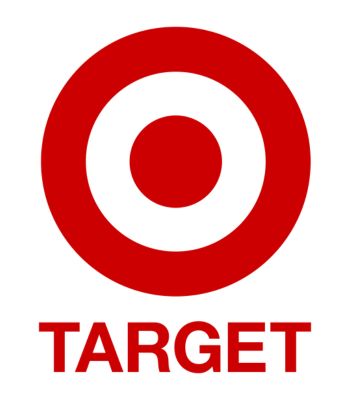

Enfamil
Aptamil
WHAT ARE THE BEST ALTERNATIVES TO ENFAMIL NEUROPRO AND APTAMIL ADVANCED?
Even though Enfamil Neuropro and Aptamil Advanced are good formulas, there are better alternatives. Here are our favorites:
- Kendamil Organic: Our top choice, Kendamil Organic, stands out because it uses whole milk and HMOs derived from breast milk. It provides a more natural approach to baby nutrition. *Read: Kendamil vs Enfamil | Kendamil vs Aptamil
- Bobbie Baby Formula: This is our favorite US brand and it impresses us with its pure and simplistic ingredients list. It’s designed to be easier on your baby’s tummy while still providing all the essential nutrients. *Read: Bobbie vs Neuropro | Bobbie vs Aptamil
- Holle Baby Formula: Holle sets the standard for purity and quality with its Demeter certification, meaning it only uses ingredients from biodynamic farming. If you value clean farming practices, this formula is worth considering. *Read: Holle vs Enfamil | Holle vs Aptamil
- Hipp Organic Formula: This brand is known for having the easiest-to-digest formulas, thanks to its blend of pre and probiotics. If your baby has a sensitive tummy, Hipp could be the best choice. *Read: Hipp vs Enfamil | Hipp vs Aptamil
LAST WORDS
And this concludes our comparison between Enfamil and Aptamil. We hope it helps you make an informed decision for your baby. We strongly encourage you to learn about the alternatives above before deciding.
Happy feeding!
We’re Maria and Alberto, a married couple and educators who are nutrition enthusiasts. Even before we had kids, we were already crazy about nutrition.
We’d read scientific articles, watch videos from nutritionists, and spend hours listening to nutrition podcasts.
Today, we continue doing this, but in a different way, as we’ve learned to sift through the noise and trends. Nutrition, like any other field of knowledge, the more you read and learn, the more you develop a comprehensive understanding of reality, and that’s what has happened to us.
Before having our first child, we focused on learning everything we could about child nutrition, using the same techniques we had already employed, backed by our extensive knowledge in nutrition.
Our mission is to help other parents with their children’s nutrition, to help them become the best versions of themselves.
If we are what we eat and drink, which is absolutely true, let’s do it right!


